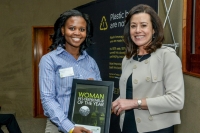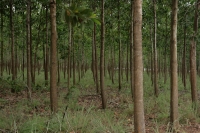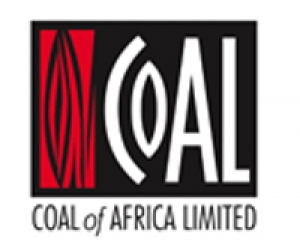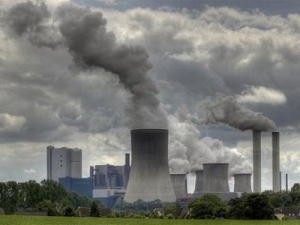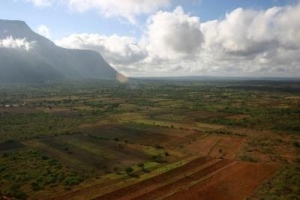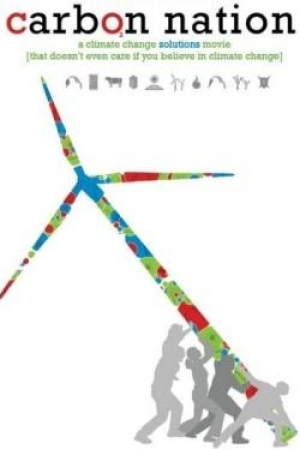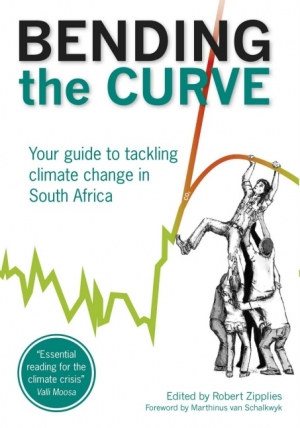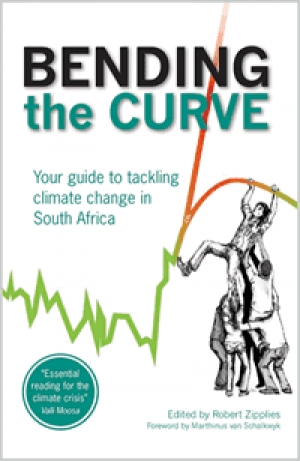In 2012 all of 50 280 tonnes of PET plastic beverage bottles were recycled in our country, saving 75 420 tonnes of carbon emissions and 311 736 cubic metres of landfill space.
On 26 June 2013 CO2 in the atmosphere rocketed to 400 parts per million, partly due to emissions caused by human actions.
“Ask yourself: Are you thinking of now, or are you thinking of your grandchild’s future?” This was the question posed by climate scientist Inez Fung, a professor of Atmospheric Science at the University of California and co-director of the Berkeley Institute of the Environment.
Living fences are a sustainable and beautiful alternative to conventional construction. This offers farmers, wildlife, and plants numerous advantages.
From every corner of the earth people have been doing their best to Connect the Dots on climate change. We have photos from beneath the ocean waves, high-altitude glaciers, the middle of big cities fighting sea level rise and remote deserts battling drought.
The history of the South African English newspaper industry goes back hundreds of years as mining tycoons acquired newspapers through Johannesburg Consolidated Investments, a subsidiary of mining giant Anglo American.
The coalition of civil society organisations challenging the authorisations given to mining company Limpopo Coal (Pty) Ltd’s proposed Vele colliery outside the Mapungubwe National Park and World Heritage Site, has resolved to commence direct formal negotiations with Limpopo Coal and its holding company Coal of Africa (CoAL).
‘Farming for the Future’ is a holistic approach based on working with nature instead of against it, which seeks to combine the best of conventional farming with the best of organic farming. Woolworths recently audited 15 of their largest fruit and vegetable growers, who supply some 37% fresh produce on a total area of about 45 000 hectares.
In the red: We've already eaten into - and substantially so - our future carbon budget, explained Prof Harald Winkler of UCT's Energy Research Centre in his inaugural lecture, 'Climate Change Mitigation in the Context of Development'.
Energy continues to be big news. In South Africa, there€™s a focus on our future energy mix: that is, to say how much energy we should be generating from fossil fuels, nuclear or renewable energy resources. It€™s a critical issue, not just from an environmental perspective but also from an economic viewpoint. Surprisingly, we€™ve heard little from business on the issue and arguably current Government deliberations aren€™t to business€™s liking.
The Integrated Resource Plan (IRP), Government€™s framework for meeting SA€™s future energy needs, is being finalised. Under this scenario SA will require far more energy than is currently available and, the IRP proposes, up to 70% is to be sourced from fossil fuels (primarily coal-based energy), 14% from nuclear and 16% from renewable sources by 2030.
While the reduction of fossil fuels from its current 95% of SA€™s energy sources is to be applauded, there will still be an increase in fossil fuel usage in absolute terms and a concurrent increase in associated greenhouse gases. Eskom€™s two new coal-fired power stations €“ Medupi and Kusile €“ will provide an additional 9 500MW of energy to the grid. Medupi alone will be the world€™s fourth largest coal-fired power station. Antiquated stations such as Komati, Grootvlei and Camden are being revived, indicating that Eskom remains well wedded to coal to meet SA€™s future energy demands.
business needs to be challenged
Business needs to be challenged on whether that€™s in its best interest. There are numerous reasons why I€™d argue it is not. First, Government committed SA to conditional, but ambitious, greenhouse gas reduction targets at the Copenhagen climate change talks in 2009. Against a 'business as usual€ growth trajectory, SA aims to reduce greenhouse gases by 34% by 2020 and by 42% by 2025. With the help of some innovative legislation, Government must expect business to meet these targets on its behalf. This will be difficult if SA brings on line additional fossil-fuel based electricity.
Second, Government appears set on the idea of carbon taxes. A discussion paper released by the National Treasury in December last year mooted levies from R75/t of CO2, rising to as high as R360/t. Business will find that expensive, especially when bolted to increased electricity costs.
Third, companies are setting their own carbon reduction targets. Some of these are in absolute values, such as FirstRand€™s 11% reduction between 2008 and 2011. Those targets are publicly declared and in this day and age of integrated reporting are gaining prominence. Such targets will be difficult to achieve without significant reduction in fossil-fuel based power and the availability of alternate clean resources.
meeting reduction targets
Finally, business faces various forms of compliance, including the submission to the Carbon Disclosure Project (CDP) of their carbon footprints and achievement (or not) in meeting reduction targets. The CDP has proven extremely successful in publicising business€™s performance and that€™s often picked up by the media. There€™s an inherent reputational risk for companies whose carbon footprints increase but are unable to achieve stated reduction targets.
So why the muteness from business when the issue of carbon and energy is of such direct concern to it? One could surmise it€™s because business believes it€™s more beneficial to engage with Government behind closed doors. However, that would strike a blow for transparency and misses the opportunity to join forces with other clean energy voices.
Cynically, perhaps, it€™s because fossil-fuel based energy is perceived as the cheapest alternative €“ which it currently is €“ and business wants the least expensive option, even if that€™s contrary to national or corporate carbon targets. But such a viewpoint would be short-sighted of business. With taxes and other instruments in the offing, fossil fuel energy will become increasingly expensive and, if climate change is a concern, then business should be unequivocally calling for a rapid replacement of such energy with cleaner alternatives.
By Alex Hetherington. Source
South Africa is committed to becoming a low carbon economy and to reducing our carbon emissions by 34% by 2020. The demand for skilled professionals in the carbon and energy sectors is rising. Predictions around job creation from these industries are very promising.
Nedbank, the only bank in South Africa to go carbon neutral, has offset its carbon emissions with a multi-million rand forest conservation and community upliftment deal in the Kasigau Wildlife Corridor in Kenya.
Businesses that want to be competitive and remain in business will need to start adapting their business models for the carbonconstrained world sooner rather than later, experts agree.
'If you don€™t know where you€™re going, any road will lead you there.€
This is as true in achieving sustainable energy efficiency as in any other core business outcome. Being Energy Smart means having stretched targets. You also need to understand what is required to bridge the gap between your current situation and the goals you want to achieve, or the state to be.
Earthlife Africa Cape Town and friends will hand Minister Pravin Gordhan a sheaf of research that confirms that a 'No Nuclear, No Coal, No Price Increase€ future is possible and will deliver improved work and livelihood opportunities for South Africans, improved health and lower energy costs over time. This to commemorate Chernobyl Day (26 April), the anniversary of the single largest nuclear disaster in history where many people died.
We knew Moving Planet would move - we just didn€™t know how fast. Here is a story from 350.org:
It feels like it€™s going 82.8 miles per hour (which happens to be the fastest speed ever recorded on a bicycle). In the week since we launched this global day of action, we€™ve already heard from hundreds of organizers in every corner of the planet who are making plans for September 24.
The South African government, while considering its developing country status, also acknowledged responsibility as the 14th biggest emitter of greenhouse gases in the world. It is with this in mind that President Jacob Zuma announced South Africa€™s climate targets at the Copenhagen conference in December 2009.
When it comes to global warming, we all know that there€™s a problem. We€™re past the point of theories and projections. Things are happening in our world right now that hammer this point home. Epic end-of-the-world draughts and floods are currently ravaging cities in Australia, Brazil, Sri-Lanka & South Africa. 53 of our glaciers have already disappeared, and important ice caps like Mount Kilimanjaro are melting away right now, with disastrous consequences.
The science is indisputable €“ climate change is a reality. Our lives will change irreversibly as we begin to adapt to these changes and as government, business and individuals begin to dramatically cut emissions to avoid catastrophic climate shifts. While these changes might create uncertainty and some anxiety, they herald a tremendously exciting era of transition, where our generation gets to redesign how we do everything.
Bending the Curve was born out of a need for South Africans to have access to better information about how specific sectors of society can contribute to tackling climate change. Bending the Curve is not just another book about the climate crisis, but a guide - co-authored by 24 experts - that will help you move from deliberation to action.







